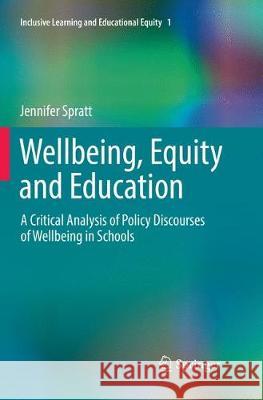Wellbeing, Equity and Education: A Critical Analysis of Policy Discourses of Wellbeing in Schools » książka
topmenu
Wellbeing, Equity and Education: A Critical Analysis of Policy Discourses of Wellbeing in Schools
ISBN-13: 9783319843094 / Angielski / Miękka / 2018 / 147 str.
Wellbeing, Equity and Education: A Critical Analysis of Policy Discourses of Wellbeing in Schools
ISBN-13: 9783319843094 / Angielski / Miękka / 2018 / 147 str.
cena 481,91
(netto: 458,96 VAT: 5%)
Najniższa cena z 30 dni: 462,63
(netto: 458,96 VAT: 5%)
Najniższa cena z 30 dni: 462,63
Termin realizacji zamówienia:
ok. 22 dni roboczych
Dostawa w 2026 r.
ok. 22 dni roboczych
Dostawa w 2026 r.
Darmowa dostawa!
Kategorie:
Kategorie BISAC:
Wydawca:
Springer
Seria wydawnicza:
Język:
Angielski
ISBN-13:
9783319843094
Rok wydania:
2018
Wydanie:
Softcover Repri
Ilość stron:
147
Waga:
0.23 kg
Wymiary:
23.39 x 15.6 x 0.86
Oprawa:
Miękka
Wolumenów:
01
Dodatkowe informacje:
Wydanie ilustrowane











